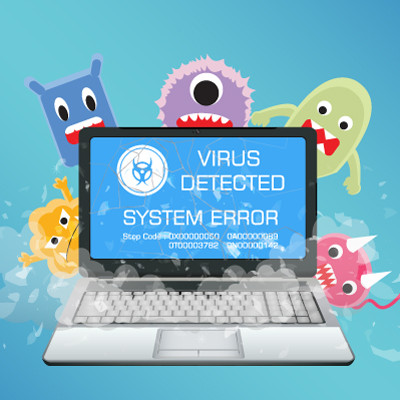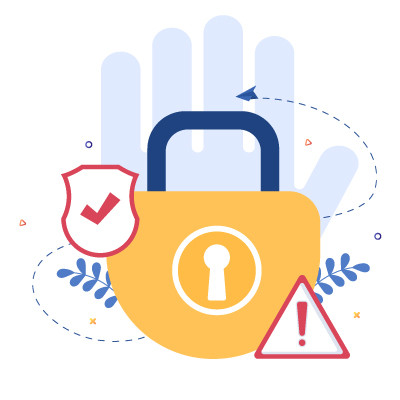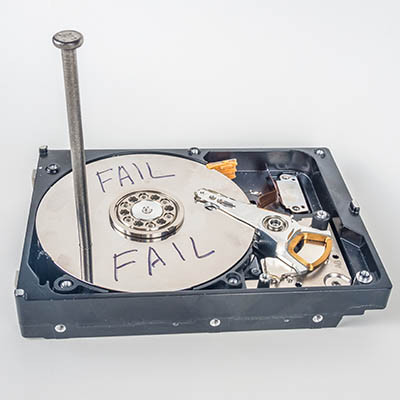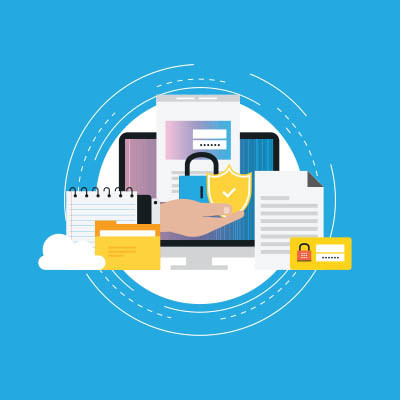Just about all companies collect data, including many you work with. Your business too collects data from customers to aid in its operations. In terms of your own privacy, though, you should take certain measures to protect your personal data. Here are some of the ways you can combat the predatory practices of advertisers and cybercriminals alike.
Home
About Us
IT Services
Understanding IT
- Understanding General Data Protection Regulation Compliance
- Understanding Automation
- Understanding Ransomware
- Understanding Shadow IT
- Understanding Your Virtual Identity
- Understanding the Modern Office
- IT Threat Glossary
- Understanding Business Continuity
- Windows Server 2003: End of Life
- Understanding the Internet of Things
- Understanding Network Security
- Understanding SOX
- Understanding BYOD
- Understanding PCI DSS
- Windows XP End of Life
- Understanding HIPAA
- Cloud Computing
News
Blog
Support
Contact Us
(713) 979-2090
- Register
- Login
Zinc Blog
Antivirus software is one of those things we all know we need, but have you ever stopped to think about how it actually works? Understanding the basics can help you appreciate why keeping it updated is so important. Today, we took a look at antivirus software.
Cybersecurity is a major issue for every for-profit, non-profit, and individual out there. There are near-constant threats coming at you every day, and if you don’t take this particular threat seriously, you will likely have a tough go of it if you want to use the Internet or online resources. The fact is that people absolutely need to be sure that you are doing everything you can to protect the data they give you. Let’s take a look at why just giving an apology isn’t cutting it when dealing with the protection of customer personal data.
Social media might connect people unlike any tool previously seen, but it’s not all sunshine and daisies. After all, this same revolution in communication has brought about one of the largest ways to scam unsuspecting users. Today, we want to take a look at how these social media scams work and what you can do to keep yourself safe.
Business continuity is a critical element of any organization’s preparations for the future, including how comprehensive the backup is designed to be. Let’s discuss the steps that businesses—especially small ones—need to take to ensure their data is protected.
Every year around this time, some particular stories are often told as part of ongoing family tradition. We like to take some time and share some holiday stories of our own, slipping in our own lessons that mainly apply to the businesses we work with and amongst.
What follows is one of these tales.
It’s fun to be critical of social media, but there’s no denying the massive influence it has on individuals, societies, businesses, and even the political landscape. Since social media plays such a big part in so many areas of your digital life, it’s important to know how it all factors into your personal rights and privacy. Today, we want to examine the idea of who really owns what you post on social media and who is in control of your accounts… because it’s definitely not you.
When it comes to data access, there’s no good reason for everyone in your business to have access to all the files. There’s just too many risks involved, and you’re not about to make risk management the central part of your job duties. Therefore, it makes sense to limit who has access to what data based on their user role.
For your business to achieve true business continuity—meaning you can maintain your operations regardless of disasters or issues—a data backup is a critical element of your preparations.
As such, it is critical that your backup is designed to be as comprehensive and reliable as possible.
ZIP files, the affectionate nickname for compressed folders, are quite useful for businesses. However, some employees don’t realize just how useful they can be or the benefits they are foregoing. Let’s discuss what a ZIP file is, how it can contribute to productivity in your office, and how to make one.
Data privacy is no laughing matter, and the more people learn about it, the more seriously they tend to take it. It’s quite common for you to face privacy threats in day-to-day life. Today, we want to look at some of the concerns that everyday users should be aware of with data privacy and what you can do to keep yourself safe.
There has been a good deal of controversy about how personal data has been collected, sold, and used over the past few years. Companies of all types package and sell data to create a valuable extra revenue stream for their business, and while this should be thought of as a side effect of all the data that is created by people, it can also create some pretty difficult situations to try and navigate. Today, we’ll take a look at the data-broker loophole, how it works, and what can be done about it.
Blockchain technology is in the zeitgeist, but few people know how to explain it to someone else. They might think that it’s something to do with Bitcoin, to which they would be right, but it’s more broad than that. Today, we want to explore what the blockchain is and some of the ways businesses are using it.
You may have noticed a particular icon on some of the websites you’ve visited. An orange box with what looks like waves emanating from a dot in the bottom-left corner, this icon indicates that the website uses something called RSS technology.
So, what is RSS, and what is it for?
A lot of people don’t take cybersecurity and data privacy seriously enough, and that puts both them and others at risk. We’ve all gotten used to sharing personal information online—whether it’s on social media, shopping websites, or other digital services. But if we’re not careful, this can lead to big problems like hackers stealing your identity or money. When people don’t use strong passwords or turn on two-factor authentication, they leave gaps that hackers can take advantage of. These gaps don’t just affect individuals—they can lead to bigger cyberattacks that hurt entire organizations or communities.
It was recently disclosed that Slim CD, a payment gateway, suffered a data breach that exposed many, many credit card accounts (nearly 1.7 million) from August 17th, 2023, until June 15th, 2024.
Let’s discuss the situation and how it provides a lesson for your business to take seriously.
The demand for digital storage has skyrocketed over time. While hard disk drives (HDDs) once dominated the market, solid-state drives (SSDs) are now becoming more popular thanks to their speed, durability, and increasing affordability.
That said, HDDs are still in wide use, though they are far more susceptible to failure compared to SSDs. So, how can you spot the signs that your hard drive might be on the verge of failing?
Modern businesses lean heavily on collaboration, and without efficient and reliable file sharing, that strategy goes out the window. It’s important that you know how to build and maintain solid file sharing practices and get the technology you need to make that possible. In today’s blog, we will give you four tips on how to build an efficient and secure file-sharing platform that can take your business a long way.
Technology continues to play a major role in healthcare, especially as it has become more prominent. Through technology, the healthcare industry has been able to stabilize costs, improve access, and personalize care delivery—challenging concepts in years past. That said, these innovations come at the cost of potential issues with data privacy… issues that become more prominent as technology becomes even more advanced.
Even if it didn’t directly affect you, you have probably heard about the Crowdsrike outage that caused critical errors in a lot of Microsoft-run systems. Due to the sheer volume of companies and organizations that are using Windows, this error caused an unprecedented amount of computers to crash and took down over 8.5 million systems for extended periods and cost some of the most successful businesses billions of dollars. It was also noteworthy for affecting air travel, causing 3,000 flights to be canceled and wreaking havoc on people’s travel plans. As the largest outage in world history, it made a lot of people realize that the technology that we all depend on for our livelihoods isn’t infallible. Today, let's take a look at some of the things we should take away from the CrowdStrike outage.
- You are here:
- Home /
- Blog /
- Zinc IT Team /
- Tip of the Week: Keep an Eye Out for These Smartphone Battery Killers




















